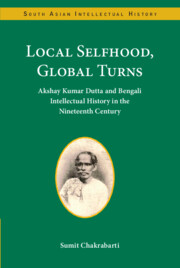
- Cited by 1
-
Cited byCrossref Citations
This Book has been cited by the following publications. This list is generated based on data provided by Crossref.
Ray, Sambuddha 2025. ‘More than nature needs’: Clock-time, ethical play and the child in Rabindranath Tagore’s not-so-‘useful’ education. Educational Philosophy and Theory, p. 1.
- Publisher:
- Cambridge University Press
- Online publication date:
- June 2023
- Print publication year:
- 2024
- Online ISBN:
- 9781009339841


